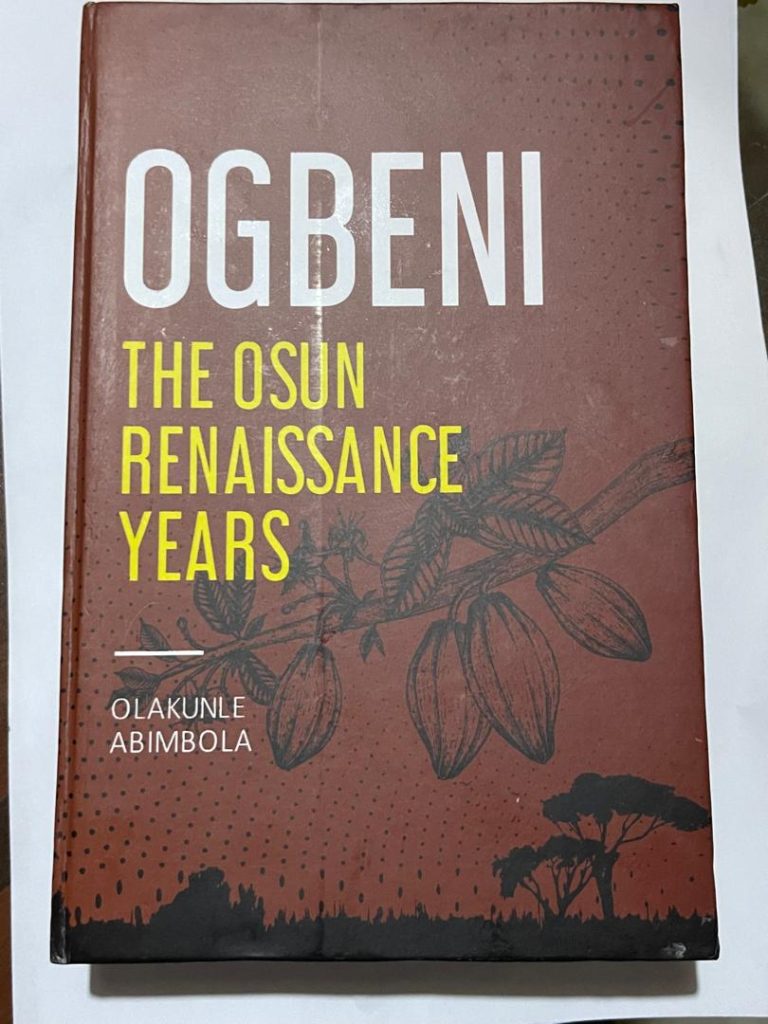- By Yetunde Yekini-Oropo
A Nigerian columnist, Olakunle Abimbola of The Nation newspapers, is set to release a new book Ogbeni: The Osun Renaissance Years.
According to the author, the book chronicles the administration of the former Governor of Osun, Ogbeni Rauf Aregbesola and the ideological inclinations that directed his approach to governance.
Abimbola has written under his weekly column “Republican Ripples” in The Nation Newspapers since 2007.
The author of the 466-paged book calls it “An African Guide to Grassroot Politics and Development.
A statement made available to the NPO Reports said the book was published by Safari Books. It is said to be a two-part publication Part One being Oranmiyan and Part Two called Renaissance.
“Since Chief Obafemi Awolowo and his Action Group (AG) government of the Western Region (1952-1959), no government, federal of state, has done what Governor Rauf Aregbesola did, during his eight-year tenure in Osun, South-West Nigeria. IT was a total and comprehensive development, across different Osun demographics,” the book says
Under Part One of the book, the reader is bound to read Chapters 1-6 which are titled: Balogun Musulumi of Ijesaland, Progressive Collapse, 2003, Gloom and Doom, Oranmiywan, From FoRA PFG and The Mandate and the Limbo.
Under Part Two of the book, There are Chapters 7-15 and these are: Rebirth and Rebrand, Flagship: OYES, Race Against Time: Infrastructure, O’School and Opon Imo, Special Needs: Agba Osun, Tourism and Security, Hafsa: The Salary Crisis, Debt Financing, Media Hostility.
Ogbeni: The Renaissance Years details Aregbesola’s incursion into the Osun politics; the election and his more than three years of battle to reclaim his mandate, governance challenges and the successes.
The author tells his readers that the programmes executed under the Aregbesola administration garnered series of global recognitions making some of them acceptable templates for other states to copy.
Regrettably, the author tells his readers “…by a conspiracy of peer envy and bad politics, most of these policies and programmes were pared down, if not outrightly abandoned.
For that, Aregbesola’s All Progressive Congress (APC) paid a hefty price in subsequent electoral losses, though bitter partisans, still even more bitterly, argue about who was responsible for that debacle, including Aregbesola’s own role in it all.”
According to the author a date will be announced in due course when the book will be presented to the public.


